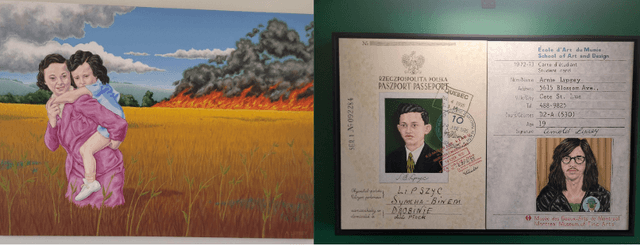“How did you two meet?” is a fairly common question to ask of couples. In the Jewish community, being set up is a fairly common answer. Shidduchim, or matchmaking, is considered a mitzvah among Jews. The idea of matchmaking may seem archaic to some, perhaps if Jeremy Bock and Sheldon Harnick’s “Matchmaker, Matchmaker” from the musical Fiddler on the Roof or Netflix’s Jewish Matchmaking are one’s only reference points for the shidduch process.
Even with the introduction of dating apps–including those focusing on Jewish dating, such as JDate and JSwipe–the mitzvah of shidduch is still very much in use throughout all denominations of the Jewish community. In a modern spin on the tradition, some people have even created shidduch Instagram pages to connect as many Jews as possible.
Shidduchim can take many forms, from an informal blind date to the employment of a matchmaker. The process looks different for everyone. One rabbi based in Brooklyn, who preferred to remain anonymous, has matched many couples together. He believes the nature of Jews to act as a community can explain why the shidduch is so popular. “The idea that a person has [been] vetted seems more secure than the idea of an app,” he says.
When he has a pair in mind, he will meet with each person and read over their dating resumés to get an understanding of who they are and what they are looking for. While not the most romantic document, resumés “place you within the ecosystem.” A candidate will include personal information like “age, parents, their rabbi and friends, educational background, and of course, photos.” Providing references for a potential partner to contact is also not uncommon. Résumes are also helpful in matching people’s level of religious observance.
The rabbi believes this vein of shidduch is most common in the Modern Orthodox community. Within Hasidic communities, however, “people already know everyone and do in depth verification steps and an agreement of the respective families before the young people can even meet.”
Muriel Seligson, a banker from New York City, sees shidduch as a great honor. She has set up around 100 people and is responsible for 7 marriages–so far. “It’s a great feeling but it’s a huge responsibility…sometimes I get scared, but I’m not responsible [past the] introduction.” Seligson takes a less formal approach to setting people up. Usually, someone will call her saying they are looking to date or get married, and if she knows a potential match, she puts them into contact. “I always ask, if you could design your dream person, who would it be?” Then, she tells them, “your dream person doesn’t exist.” She says that “people are too stuck in their beliefs” and should be open minded.
Another issue Seligson sees is that people are too shy. “I tell them to call right away; it’s worse when people procrastinate.” The sooner a couple can set up a date, the sooner they learn if the match will work out or not. Ms. Seligson’s seventh match got married just this month. “I felt like I was the one getting married. It’s a great feeling.”
My own parents were set up by a former employer, and the rest, as they say, is history. Without the person who thought my parents might hit it off, I might not be here today. Shidduch enables people who operate in different social circles the chance to meet and connect. Maybe they won’t hit it off, maybe they will, but without the urging of a third party, two people may never have met. Maybe one day, you too can be the reason a couple met and married. And perhaps their children will thank you for setting up their parents like I thank the man who set up mine.
Powered by Froala Editor






